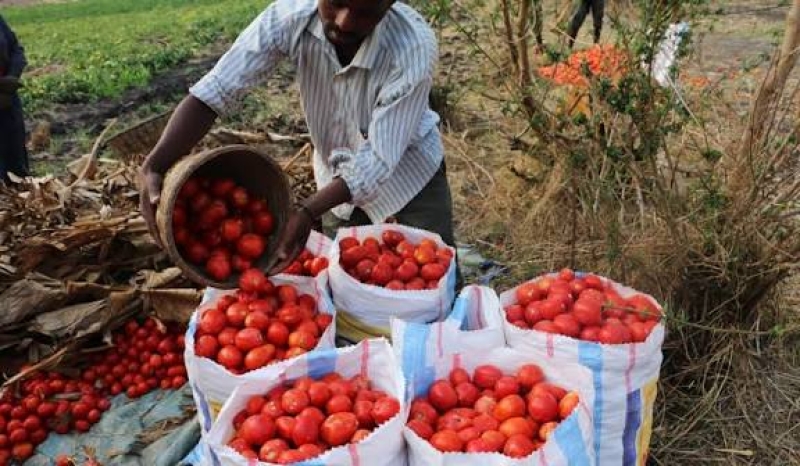- Khaleda now not fit for travelling: Medical Board |
- Panchagarh records lowest temperature 10.5°C so far this year |
- Christmas returns to Bethlehem after two years of Gaza war |
- কলাপাড়া মুক্ত দিবসে এবার সাড়া নেই কার |
- One killed, two injured in attack at Ctg meeting over marriage |
Polyshade tomato farming reviving Narail’s rural economy

A quiet agricultural revolution is taking place in Narail, where farmers are turning to year-round polyshade tomato cultivation for higher yields and better profits. Things look to be very encouraging.
With support from the Department of Agricultural Extension (DAE) under the Climate Smart Agriculture and Water Management Project, farmers in Tularampur of Sadar upazila have planted the summer variety Bari-8 with remarkable success. Thanks to modern techniques and proper care, the yields have been impressive and profits are encouraging.
Kamalpur farmer Kamrul Islam shared his story proudly.
“I cultivated tomatoes on 20 decimals of land after receiving training from the agriculture office. I spent about Tk 60,000, and I expect to make a profit of Tk 100,000 to Tk 150,000," he said.
Another farmer, Baharul Molya, said, “I usually grow other crops, but when tomato prices went up, I decided to try summer tomatoes this year. I got good yields and expect solid profits after expenses.”
Farmer Rana Molya credited training from the agriculture office for helping him control diseases and boost production.
“There’s high demand in the local market. I sold tomatoes at Tk 80–90 per kilogram wholesale. With expenses around Tk 60,000, I expect to earn Tk 100,000 to Tk 160,000 in profit," he said.
Encouraged by these results, many other farmers are preparing to switch to tomato farming.
According to Rajib Biswas, a sub-assistant agriculture officer at Tularampur Union, summer tomatoes were grown on about 1.5 acres of land this year.
“As market prices stay high, farmers’ interest in tomato farming is growing. We provide them with training, technical advice, and necessary inputs. Cultivating tomatoes on one acre costs roughly Tk 300,000, but farmers can earn Tk 250,000 to Tk 300,000 in net profit," Rajib said.
With growing demand and impressive returns, more farmers are expected to take up tomato cultivation in Narail next year, reports UNB.
The success of this venture is not only boosting incomes but also reshaping the rural economy—offering new hope and opportunity in the heart of Bangladesh’s farmland.

